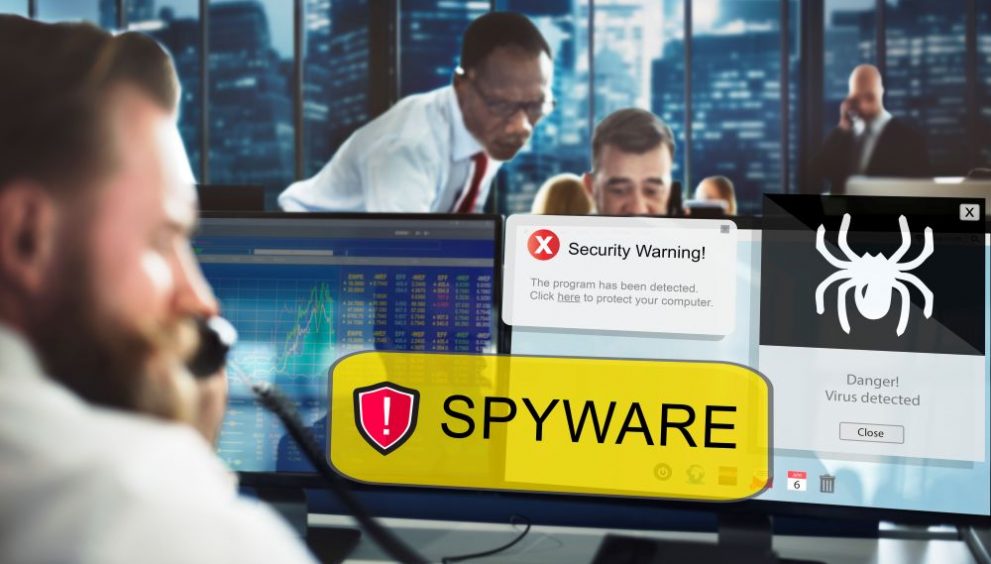In cybersecurity, few threats are as deceptive and potentially harmful as fake antivirus software. These malicious programs masquerade as legitimate security solutions, preying on unsuspecting users’ fears and tricking them into downloading and installing rogue software. Not only can fake antivirus apps compromise your system’s security, but they can also steal personal information and extort money from their victims.
To protect yourself from falling victim to these scams, it’s crucial to understand how to recognize the telltale signs of fake antivirus software and take proactive measures to safeguard your devices. In this blog, we’ll explore the common red flags to watch out for and provide actionable tips to help you stay one step ahead of cybercriminals.
Look for Warning Signs of Fake Antivirus Software
One of the most prominent indicators of fake antivirus software is the presence of unsolicited pop-up alerts claiming that your system is infected with viruses or malware. These alerts often appear even if you have a legitimate antivirus program installed and up-to-date. Other warning signs include:
- Suspicious installation processes that start automatically without your consent
- Excessive system resource usage, causing your device to slow down significantly
- Inability to close the program or access certain applications, such as Task Manager
If you encounter any of these red flags, it’s essential to exercise caution and avoid interacting with the suspicious software.
Check the Software’s Reputation
Before downloading any antivirus software, take the time to verify its reputation through trusted sources. Conduct thorough research by reading reviews from reputable tech websites and forums. Visit the official website of the antivirus provider and look for information about the company’s history, contact details, and customer support options.
Legitimate antivirus software will have a well-established reputation and a transparent online presence. If you can’t find reliable information about the software or the company behind it, it’s best to steer clear.
Beware of Aggressive Marketing Tactics
Fake antivirus software often employs aggressive marketing tactics to pressure users into making hasty decisions. These methods may include:
- False claims of detecting numerous infections on your system
- Urgent warnings that your device is at immediate risk
- Limited-time offers or exclusive discounts for purchasing the “full version” of the software
Remember, legitimate antivirus providers will never resort to such high-pressure tactics. If you feel unduly pressured or rushed into making a purchase, it’s a strong indication that the software may be fraudulent.
Analyze the Software’s Features and Claims
When evaluating antivirus software, carefully examine its features and claims. Legitimate security solutions will offer a range of well-defined features, such as real-time protection, scheduled scans, and regular updates. They will also provide clear explanations of how these features work to protect your system.
On the other hand, fake antivirus programs often make unrealistic promises of complete protection or claim to have exclusive features that are too good to be true. If the software’s claims seem exaggerated or vague, it’s a red flag.
Review the Publisher’s Information
Another crucial step in identifying fake antivirus software is to investigate the publisher’s credibility. Legitimate antivirus companies are well-known entities in the cybersecurity industry, with established track records and transparent business practices.
Before trusting any antivirus software, research the publisher thoroughly. Look for information about their history, headquarters location, and leadership team. If the publisher is unknown or lacks a credible online presence, it’s a strong indication that the software may be fraudulent.
Look for Unusual System Behavior
Fake antivirus software can cause unusual system behavior that should immediately raise suspicion. Some common signs include:
- Significant slowdowns or frequent crashes
- Inability to access certain files or applications
- Unexpected changes to your browser homepage or search engine
- Unfamiliar icons or programs appearing on your desktop
Verify with Official Antivirus Testing Sites
To further ensure the legitimacy of antivirus software, consult official antivirus testing sites like AV-TEST or AV-Comparatives. These independent organizations rigorously evaluate the effectiveness and performance of various security solutions.
Check if the antivirus software you’re considering is listed on these sites and review its test results. Legitimate and trustworthy antivirus programs will consistently rank well in these independent assessments.
Use Trusted Antivirus Software
The best way to protect yourself from fake antivirus software is to rely on trusted and reputable security solutions. When choosing an antivirus program, opt for well-established brands known for their reliability and effectiveness.
One such trusted solution is Quick Heal Total Security, which offers comprehensive protection against a wide range of cyber threats. With advanced features like real-time protection, web security, and phishing protection, Quick Heal ensures that your system remains safe from both known and emerging threats.
Report Fake Antivirus Software
If you encounter fake antivirus software, it’s essential to report it to the relevant authorities and platforms. This helps prevent others from falling victim to the same scam and aids in the fight against cybercrime.
You can report fraudulent antivirus software to:
- The Federal Trade Commission (FTC)
- The Internet Crime Complaint Center (IC3)
- The antivirus company whose name is being misused
- The website or platform where you encountered the fake software
Stay Safe with Quick Heal
Remember to always verify the reputation and credibility of antivirus software through trusted sources and official testing sites. Opt for reputable security solutions like Quick Heal Total Security to ensure comprehensive protection against cyber threats.
If you do encounter fake antivirus software, take immediate action to remove it from your system and report it to the relevant authorities. By staying informed and proactive, you can safeguard your devices and personal information from falling victim to these deceptive scams.
Check Out Our Full Antivirus Range



